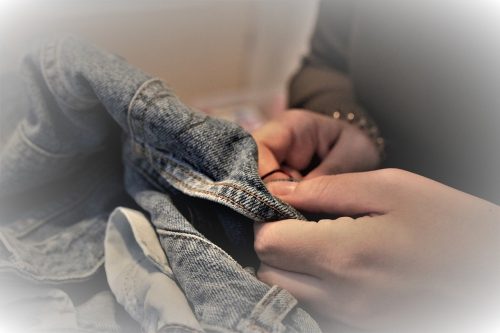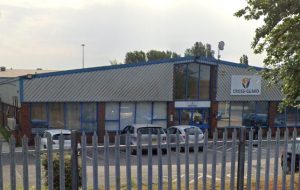Leicester mayor calls for summit to solve city’s textile factory crisis

The mayor of Leicester, Sir Peter Soulsby, and the regional secretary of TUC Midlands, Lee Barron, have written to a number of major UK fashion retailers, including Boohoo, ASOS, TK Maxx, Missguided, River Island, Next and New Look regarding what they allege are poor health and safety and employment practices among garment manufacturers, many of whom are based in Leicester.
This Thursday (August 27), TheBusinessDesk.com will host a webinar entitled Life under extended lockdown – how Leicester came out fighting – click here to register.

Sir Peter Soulsby
In the letter, the mayor and the TUC warn that many companies cannot “demonstrate that your products were not produced by exploited workers operating in dangerous conditions or worse by victims of modern slavery”.
The letter has been sent to bosses of’fast fashion’ chains, including:
Ian Grabiner, CEO Arcadia Group
Nick Beighton, CEO ASOS
John Lyttle, CEO Boohoo
Ernie Herrman, CEO TK Maxx
Nitin Passi, CEO Missguided
Nigel Oddy, CEO New Look
Simon Wolfson CEO, Next
Will Kernan, CEO, River Island
Taraq Ramzan, Quiz Clothing
Leicester has been thrust into the spotlight once more because of investigations into the causes of a spike in coronavirus cases, which led to a local lockdown, and work by an undercover reporter for the Sunday Times into Boohoo’s supply chain.
Soulsby is set to host a round table summit with retailers and unions and is encouraging all employers to sign a TUC agreement committing these retailers to procure from manufacturers who recognise and work with trade unions.
He said: “This is not a new problem but it has been once again highlighted by recent revelations about minimum wage violations and suggestions that working conditions in the industry may have been a catalyst for the spike in COVID-19 cases in the city.
“We have been working for some time to tackle this challenge but it isn’t something the local authority can solve alone, nor is it Leicester’s problem alone.
“That is why I am trying to bring together the retailers and the trade unions to get the action we need to resolve this issue. I am calling on all of the retailers we have written to today to show their commitment by joining us at the round table summit and to sign up to the TUC agreement which, if implemented, would give greater employment protection and security to thousands of people in the city.”
Deputy city mayor councillor Adam Clarke added: “We have a proud textiles heritage in Leicester and some great manufacturers producing high quality garments. I believe that Leicester should be the engine of this resurgent UK garment industry and that this could contribute positively to our local economy – but only if ethical concerns are addressed and garment workers are treated with the respect they deserve.”
Barron said: “Some retailers have tried to put systems in place to demonstrate that they procure ethically but too many garments, manufactured by people working in terrible conditions and for poverty wages, continue to get into their supply chains.
“There is only one way that these large fashion retailers can be sure that health and safety and other good employment practices are being adhered to in their supply chains and that is by insisting that they will only procure from manufacturers who recognise a trade union.
“Trade unions will not only help and support their members but they can be a free and effective solution for an industry plagued by unethical employment practices. If retailers are serious about resolving this issue then we will gladly work with them to transform the industry and improve working conditions in factories in Leicester once and for all.”
The move comes after a summer in which the spotlight has fallen on Leicester’s textile factories, with claims that Leicester textiles factories could have been behind the surge in cases in the city which led to it becoming the first in the UK to be subject to a localised lockdown by the government.
A report from Labour Behind the Label, entitled Boohoo and Covid-19, alleges that conditions in Leicester factories, which it says primarily supply Boohoo have been putting workers at risk of Covid-19 infections and fatalities.
The report suggests that some textile factories in Leicester have been operating as normal throughout the lockdown because of sustained orders from their biggest customer, Boohoo. Labour Behind the Label says that by April 22nd, factories were reportedly running at 100% capacity.







